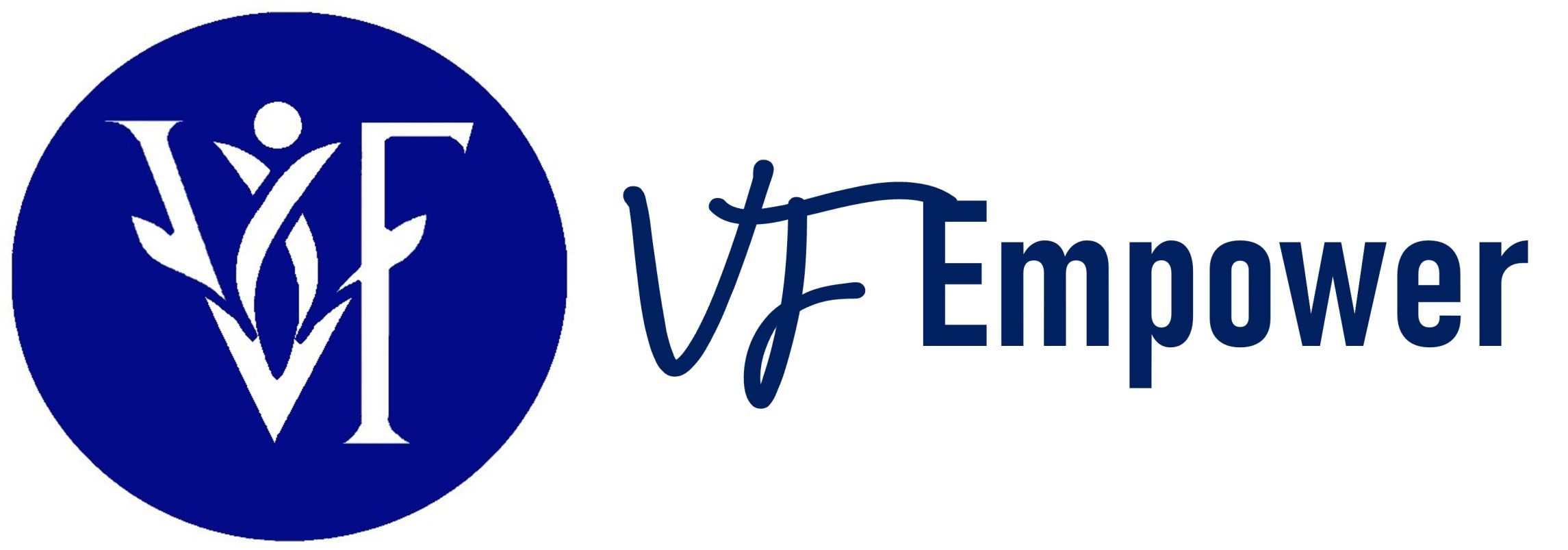Table of Contents
- 1 Struggling with Past Due Invoices and Late Payments? Avoid Top 5 Mistakes for Effective Debt Collection Call Scripts (with Examples of Effective Phrases)
- 1.1 Why Improving Debt Collection Calls is Key to Collecting Overdue Payments Efficiently?
- 1.2 The Power of Words in Improving Debt Collection Calls
- 1.3 Improve Debt Collection Calls – the Top 5 Don’t For Efficient Invoice Recovery
- 1.4 🚨 Don’t #1: Using Demanding Language
- 1.5 Don’t #2: Issuing Ultimatums Too Soon
- 1.6 Instead of: “This is your final notice.”
- 1.7 Don’t #3: Using Legal Threats Prematurely
- 1.8 Instead of: “Failure to pay will result in legal action.”
- 1.9 🚨 Don’t #4: Lacking Empathy in Collection Calls
- 1.10 Don’t #5: Using Fear-Based Language
- 1.11 Instead of: “You’re in serious trouble.”
- 1.12 Key Takeaways on Improving Debt Collection Calls for Efficient Invoice Recovery
- 1.13 Final Thoughts on Improving Debt Collection Calls: Master Debt Collection & Credit Control
Struggling with Past Due Invoices and Late Payments? Avoid Top 5 Mistakes for Effective Debt Collection Call Scripts (with Examples of Effective Phrases)
Why Improving Debt Collection Calls is Key to Collecting Overdue Payments Efficiently?
Debt collection is a critical component of accounts receivable management, but it’s also a delicate process. To improve debt collection calls, balancing persistence with empathy is key to ensuring that every collection call remains constructive rather than confrontational. Many debt collectors unknowingly use phrases that trigger debtor resistance, leading to delayed payments or even completely failed recoveries. By refining communication strategies, businesses can improve debt collection calls and boost recovery rates.
📌 Why Improving Debt Collection Calls Matters: 
- ✅ Well-structured debt collection scripts improve cash flow and recovery rates.
- ✅ Poorly worded collection calls can damage debtor relationships and reduce repayment likelihood.
- ✅Psychology of debt plays a huge role—understanding it helps collectors get better results.
💡 The goal? To improve debt collection calls that encourages cooperation and commitment to repayment. In this article, we’ll explore five common mistakes and what to say instead to boost success rates.
The Power of Words in Improving Debt Collection Calls
Words influence emotions, behaviors, and repayment outcomes. Poorly chosen phrases can cause stress, misunderstandings, or complete disengagement. Effective debt collection scripts use psychological triggers to encourage openness and repayment.
Imagine being in a tough financial spot and receiving a threatening call. Would you cooperate or shut down? Now imagine getting a call offering a solution. The way we communicate changes everything.
Let’s examine five commonly used phrases that can hinder the debt collection process and explore better alternatives through examples of effective debt collection scripts that increase the chances of getting paid.
Improve Debt Collection Calls – the Top 5 Don’t For Efficient Invoice Recovery
🚨 Don’t #1: Using Demanding Language
Instead of: “You must pay this immediately!”
Try: “Let’s discuss a payment plan that works for you.”
 Demanding immediate payment in a collection call can sound forceful and abrupt, triggering resistance rather than cooperation. Many debtors are already under financial stress, and issuing a rigid collection demand may push them to avoid further communication about their overdue invoice altogether.
Demanding immediate payment in a collection call can sound forceful and abrupt, triggering resistance rather than cooperation. Many debtors are already under financial stress, and issuing a rigid collection demand may push them to avoid further communication about their overdue invoice altogether.
Take, for example, David, a freelance graphic designer who fell behind on his credit card payments after losing a major client. When a debt collector contacts him with an aggressive demand, “You must pay this immediately!”, he panics and ignores future debt collection messages. However, if the collector had instead said, “Let’s discuss a payment plan that works for you,” David might have felt more comfortable explaining his situation and negotiating a structured repayment arrangement.
Expanding on this, consider that debtors often feel ashamed or helpless about their situation. When approached with understanding and an effective payment collection call, they are more likely to engage in meaningful conversation. Offering flexible payment options, explaining the benefits of timely repayment (such as improving their credit score and reducing stress), and using effective communication techniques can make them more receptive. Debt collection scripts should focus on collaboration, ensuring that debt recovery doesn’t have to be an intimidating process—it can be a guided path toward financial stability.
Why This Works:
- ✅ Reduces debtor anxiety and defensiveness.
- ✅ Encourages an open discussion about financial limitations.
- ✅ Increases the chances of securing a structured payment agreement.
- ✅ Establishes a sense of shared responsibility and problem-solving.
By reframing your message in a way that invites participation, you turn these calls on chasing accounts receivable into a problem-solving process rather than a battle for payment.
Don’t #2: Issuing Ultimatums Too Soon
Instead of: “This is your final notice.”
Try: “We want to help you before this escalates; let’s talk.”
 A phrase like “This is your final notice” often feels like an ultimatum, leaving the debtor feeling cornered. This may lead to avoidance rather than action, as people under financial stress tend to disengage from conversations they perceive as hostile or threatening.
A phrase like “This is your final notice” often feels like an ultimatum, leaving the debtor feeling cornered. This may lead to avoidance rather than action, as people under financial stress tend to disengage from conversations they perceive as hostile or threatening.
Instead, shifting to “We want to help you before this escalates; let’s talk” conveys urgency without aggression. It reassures the debtor that they still have options and that the debt collector is willing to work with them before further action is taken.
Consider the case of Linda, a restaurant owner struggling with supplier payments due to an unexpected downturn. A collection agency sends her a harsh collection letter stating, “This is your final notice.” Feeling overwhelmed, she pushes the letter aside. But if the message had been, “We want to help you before this escalates; let’s talk,” Linda might have felt more inclined to reach out and explore solutions.
Expanding on this, debt collectors can increase success rates by acknowledging the debtor’s position. By emphasizing assistance rather than threat, collectors can shift the conversation to include customized repayment schedules and even financial counseling if needed. Such strategies increase debtor engagement and may help ensure a long-term resolution.
Why This Works:
- ✅ Encourages proactive engagement instead of avoidance.
- ✅ Creates a sense of partnership rather than opposition.
- ✅ Leaves the door open for negotiation and resolution.
- ✅ Helps debtors feel more empowered in their financial decision-making.
By presenting the situation as a collaborative effort rather than a one-sided demand, you enhance the likelihood of a positive response.
Don’t #3: Using Legal Threats Prematurely
Instead of: “Failure to pay will result in legal action.”
Try: “We’re here to explore options and avoid any complications.”
 Using legal threats too soon can put debtors on the defensive, causing them to disengage instead of working toward a solution. Many debtors already feel overwhelmed, and an aggressive stance can worsen their anxiety, making them less likely to communicate. Instead of resorting to legal intimidation, shifting the tone to “We’re here to explore options and avoid any complications” fosters an environment of collaboration rather than fear.
Using legal threats too soon can put debtors on the defensive, causing them to disengage instead of working toward a solution. Many debtors already feel overwhelmed, and an aggressive stance can worsen their anxiety, making them less likely to communicate. Instead of resorting to legal intimidation, shifting the tone to “We’re here to explore options and avoid any complications” fosters an environment of collaboration rather than fear.
Consider Mark, a small business owner who recently encountered cash flow issues. When he receives a overdue collection letter stating, “Failure to pay will result in legal action,” his stress levels skyrocket, and he ignores further contact out of fear. However, if he were approached with, “Let’s discuss the best way to resolve this matter together,” he would likely feel more open to negotiating a payment arrangement that works for both parties.
Expanding on this, by showing a willingness to work with debtors instead of against them, you significantly increase the chances of a resolution. A softer, problem-solving approach also enhances the company’s reputation, reducing negative word-of-mouth or public relations fallout that aggressive collection tactics can trigger.
Why This Works:
- ✅ Avoids unnecessary escalation that can lead to legal costs and prolonged disputes.
- ✅ Encourages debtors to respond and explore realistic payment solutions.
- ✅ Strengthens the possibility of voluntary repayment instead of forced legal action.
- ✅ Maintains the creditor’s professional image and customer relationships.
By using effective debt collection scripts, incorporating empathy, and focusing on solution-based language, you increase the chances of successfully recovering overdue payments while maintaining positive business relationships.
🚨 Don’t #4: Lacking Empathy in Collection Calls
4. Instead of: “I don’t care about your situation.”
Try: “I’m here to listen and understand your circumstances.”
 When debtors feel dismissed or disrespected, they are far less likely to cooperate. Saying “I don’t care about your situation” sends a message that the debtor’s struggles are irrelevant, which can shut down communication entirely. Instead, shifting to “I’m here to listen and understand your circumstances” reassures the debtor that they have an opportunity to explain their challenges and work toward a mutually beneficial resolution.
When debtors feel dismissed or disrespected, they are far less likely to cooperate. Saying “I don’t care about your situation” sends a message that the debtor’s struggles are irrelevant, which can shut down communication entirely. Instead, shifting to “I’m here to listen and understand your circumstances” reassures the debtor that they have an opportunity to explain their challenges and work toward a mutually beneficial resolution.
Take, for example, Sarah, who recently lost her job and is struggling to pay off past-due invoices. She receives a collection call from a debt collector who tells her, “We don’t care about why you’re late on payments; you must pay now.” Feeling humiliated and defeated, she avoids future debt collection calls. However, if the collector had instead said, “We understand that financial difficulties can happen—let’s find a way forward together,” Sarah would have felt empowered to discuss her situation and propose a realistic repayment plan.
By allowing debtors to express their concerns, debt collectors create an environment where debt repayment becomes a mutual goal rather than an imposed obligation. Using an effective debt collection call script that prioritizes active listening and solution-based communication can increase successful debt recovery rates and maintain long-term customer relationships.
Why This Works:
- ✅ Encourages open and honest dialogue about financial difficulties.
- ✅ Shows debtors that the goal is resolution, not punishment.
- ✅ Increases the likelihood of an agreed repayment plan.
- ✅ Helps maintain long-term customer relationships by demonstrating empathy and professionalism.
By approaching collection calls with understanding and professionalism, you increase the chances of securing payment agreements while keeping the door open for future financial stability.
Don’t #5: Using Fear-Based Language
Instead of: “You’re in serious trouble.”
Try: “Let’s work together to find a solution.”
 Threatening statements such as “You’re in serious trouble” can create panic and fear, often causing debtors to shut down communication rather than engaging with the debt collector. While it’s essential to convey urgency in the calls, using fear-based tactics often backfires. Instead, a phrase like “Let’s work together to find a solution” keeps the conversation constructive and positions the debt collector as a partner rather than an adversary.
Threatening statements such as “You’re in serious trouble” can create panic and fear, often causing debtors to shut down communication rather than engaging with the debt collector. While it’s essential to convey urgency in the calls, using fear-based tactics often backfires. Instead, a phrase like “Let’s work together to find a solution” keeps the conversation constructive and positions the debt collector as a partner rather than an adversary.
Imagine James, a father of two who recently faced unexpected medical expenses. Receiving a overdue demanding letter stating, “You’re in serious trouble if you don’t pay up immediately” only adds to his stress, making him feel overwhelmed and defensive. On the other hand, a message such as “We understand financial setbacks happen—let’s explore a payment plan that works for you” encourages him to reach out and find a manageable resolution.
Expanding on this, collectors who take a collaborative approach often find that debtors are more willing to prioritize their outstanding payments. Fear-driven tactics may result in temporary compliance, but fostering a respectful dialogue builds trust, increases repayment rates, and helps maintain a positive reputation for the creditor.
Why This Works:
- ✅ Reduces stress and fear that could lead to debtor avoidance.
- ✅ Encourages a cooperative rather than adversarial approach.
- ✅ Increases debtor responsiveness and engagement.
- ✅ Enhances the company’s reputation for fair and respectful collection practices.
By shifting from threat-based language to collaborative problem-solving, debt collectors can significantly improve their collection success rates while ensuring long-term debtor engagement.
Key Takeaways on Improving Debt Collection Calls for Efficient Invoice Recovery
Mastering the right language in debt collection can significantly impact the success of your efforts. By avoiding aggressive or confrontational phrases and replacing them with more empathetic and solution-focused alternatives, you can foster better communication and cooperation. Here are the key takeaways to improve debt collection calls:
- ✅ Words Matter: The phrases you use can either build trust or create resistance. Choosing constructive language improves the likelihood of payment.
- ✅ Empathy Leads to Cooperation: When debtors feel heard and respected, they are more willing to engage in dialogue and find a workable solution.
- ✅ Avoiding Threats Increases Response Rates: Legal threats and intimidating language can cause debtors to shut down communication. Instead, framing discussions around solutions encourages proactive responses.
- ✅ Maintaining Professionalism Protects Your Brand: Harsh collection tactics can damage your company’s reputation. A compassionate approach enhances trust and long-term relationships with customers.
- ✅ Flexibility Encourages Repayment: Offering reasonable options, such as structured payment plans, can make debtors more willing to cooperate and commit to repayment schedules.
By implementing these strategies, you can transform the debt collection process into a more effective and respectful experience for both parties. Remember, successful debt recovery is not just about getting paid—it’s about fostering communication, problem-solving, and maintaining positive relationships.
Final Thoughts on Improving Debt Collection Calls: Master Debt Collection & Credit Control
Debt collection doesn’t have to be confrontational. Debt collection doesn’t have to be confrontational. A well-structured script can improve debt collection calls significantly, making conversations smoother and more productive. Using professional and empathetic language is essential if you want to improve debt collection calls and increase payment success rates.
If you want to get more insights on credit control, click here to explore all my blogs on effective debt collection and cash flow management.
For a deeper dive and hands-on strategies, consider enrolling in my online course: Master Effective Debt Collection & Credit Control to take your skills to the next level and maximize your recovery success.
In this comprehensive course, you’ll learn:
- ✅ How to assess the creditworthiness of customers
- ✅ The process of establishing robust credit policies
- ✅ Implementing preventive measures to avoid delinquencies
- ✅ Effective monitoring of credit performance
- ✅ Techniques for handling difficult debtors with confidence
- ✅ Negotiation strategies for resolving disputes and objections
- ✅ Retrieving long-aged debts while maintaining strong customer relationships
- ✅ Managing payment arrangements and installments from individuals
- ✅ Effective communication techniques for debt collection via phone, email, and meetings
- ✅ Crafting persuasive debt collection scripts and emails
- ✅ Leveraging technology to enhance efficiency in debt collection processes
- ✅ Understanding the legal and regulatory aspects of debt collection
- ✅ Navigating the landscape with compliance and safeguarding business reputation
- ✅ Techniques for handling difficult debtors with confidence
Take control of your debt collection process today! Enroll now and start mastering the art of effective credit control. Course link, please click here.




